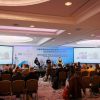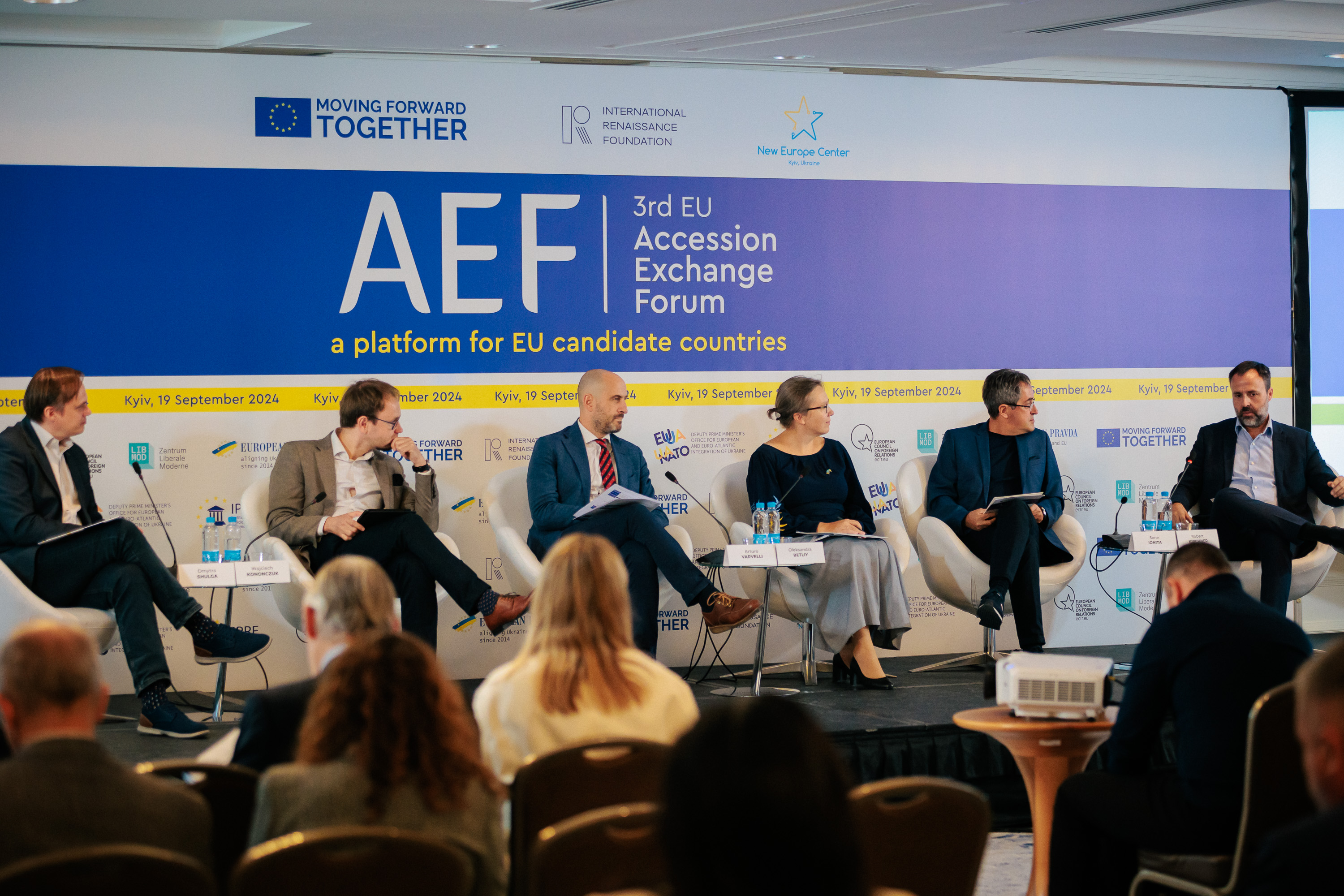
We bring to your attention the key messages of the speakers from the Session 4 “How much does it cost? The price of the enlargement and the impact on the EU budget” during the 3rd EU Accession Exchange Forum:
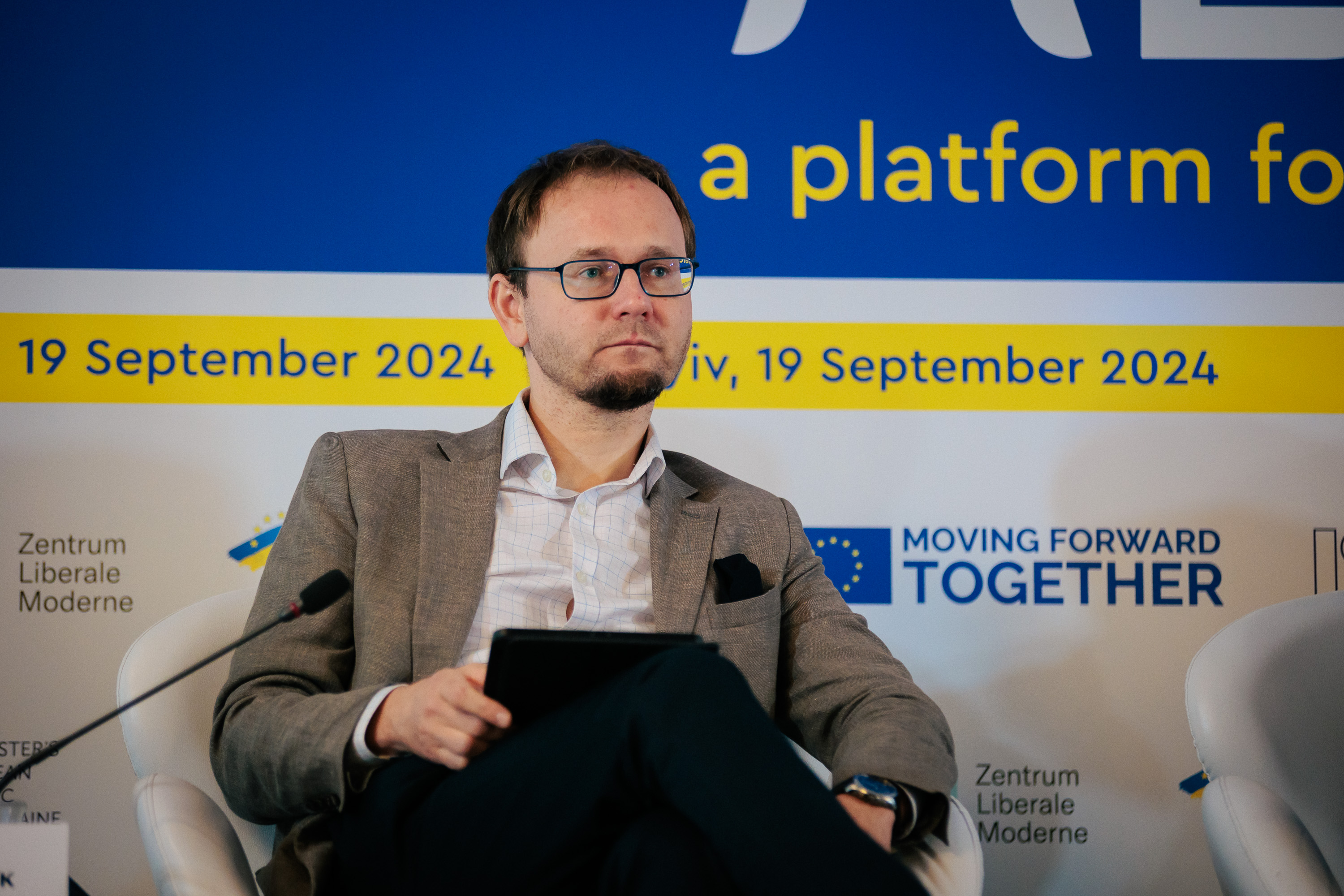
Wojciech Konończuk, Director, Centre for Eastern Studies (OSW), Poland:
We don’t have too many studies yet assessing impact on EU budget from accession of Ukraine. It’s probably too early to say, but numbers from the study published just this spring by Bruegel state that the net cost of Ukraine’s EU membership in seven years’ financial perspective would amount to 136 billion, which means less than 20 billion euro per year. This is just 0.13 of EU GDP. So, we face the question now: is this much or not so much?
There is a widespread belief that membership in the EU is about funds. And when we are talking about EU15 (so-called “old members”), there is also belief that they pay too much. But obviously, the EU is not only about money. The EU is a beneficiary from being a member of the common market. This is a boost for not only economies from the Central European countries, but also boosts for German and French economies. This is Schengen zone, the common endeavors in times of crisis, like during pandemic – those are very helpful.
We need an honest discussion inside the EU about cost, but also mostly benefits of Ukraine accession to the EU.
We should also, in an honest way, explain to the societies that the EU, as it was constructed at the beginning, is a value-based project. And this is a mission. So, without Ukraine, the EU construction will not be complete.
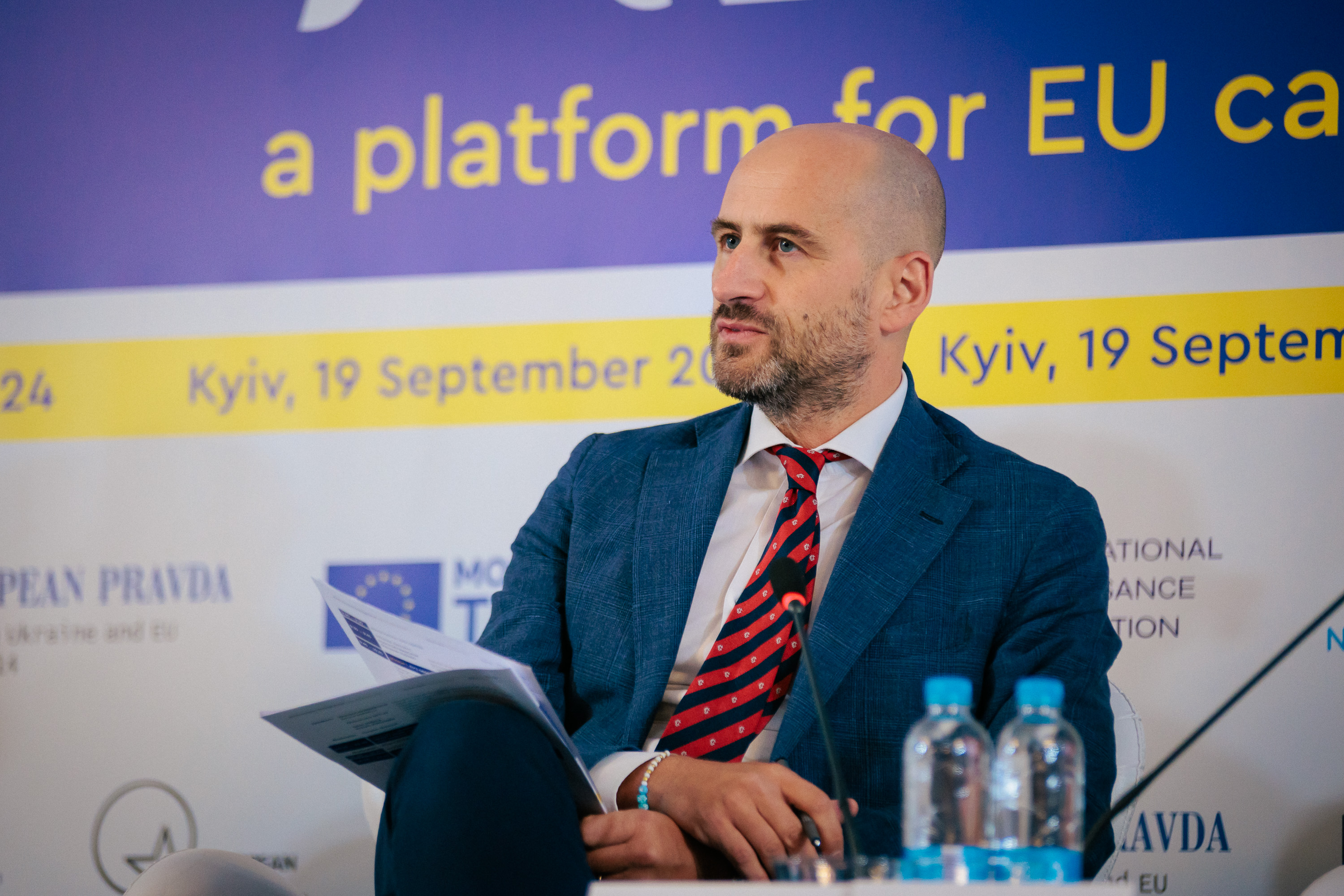
Arturo Varvelli, Head of the Rome Office, European Council on Foreign Relations (ECFR):
As a country that benefits from European integration and cooperation with other EU countries, Italy views the potential cost of enlargement as a sort of long-term investment. So we have to change the narrative in some way. New countries coming to the EU would open new markets and straighten all the European markets in some way.
We need also to talk about the cost of non-enlargement, because this cost should also be taken into account. And Italian government know it would be high, because of geopolitical and economic reasons. Despite those concerns, I think Italy views enlargement as an essential for Europe’s future.
EU accession of Ukraine should be coupled with a narrative on the reconstruction of Ukraine. So having Ukraine inside EU is not only a cost, but it is a double benefit: both geopolitical and economical one. The European community in general could also see this accession as an economic opportunity.
The enlargement will increase financial pressure on EU members. The long-term benefit of a more stable, secure & integrated Europe far surpasses the cost. Economic well-being will be a common advantage for the economies of EU states. So, I think Italy remains committed to support this process if we talk about political line of Italian government. And Italy is recognizing that investment we make today ensures a stronger, more united Europe in the years to come.
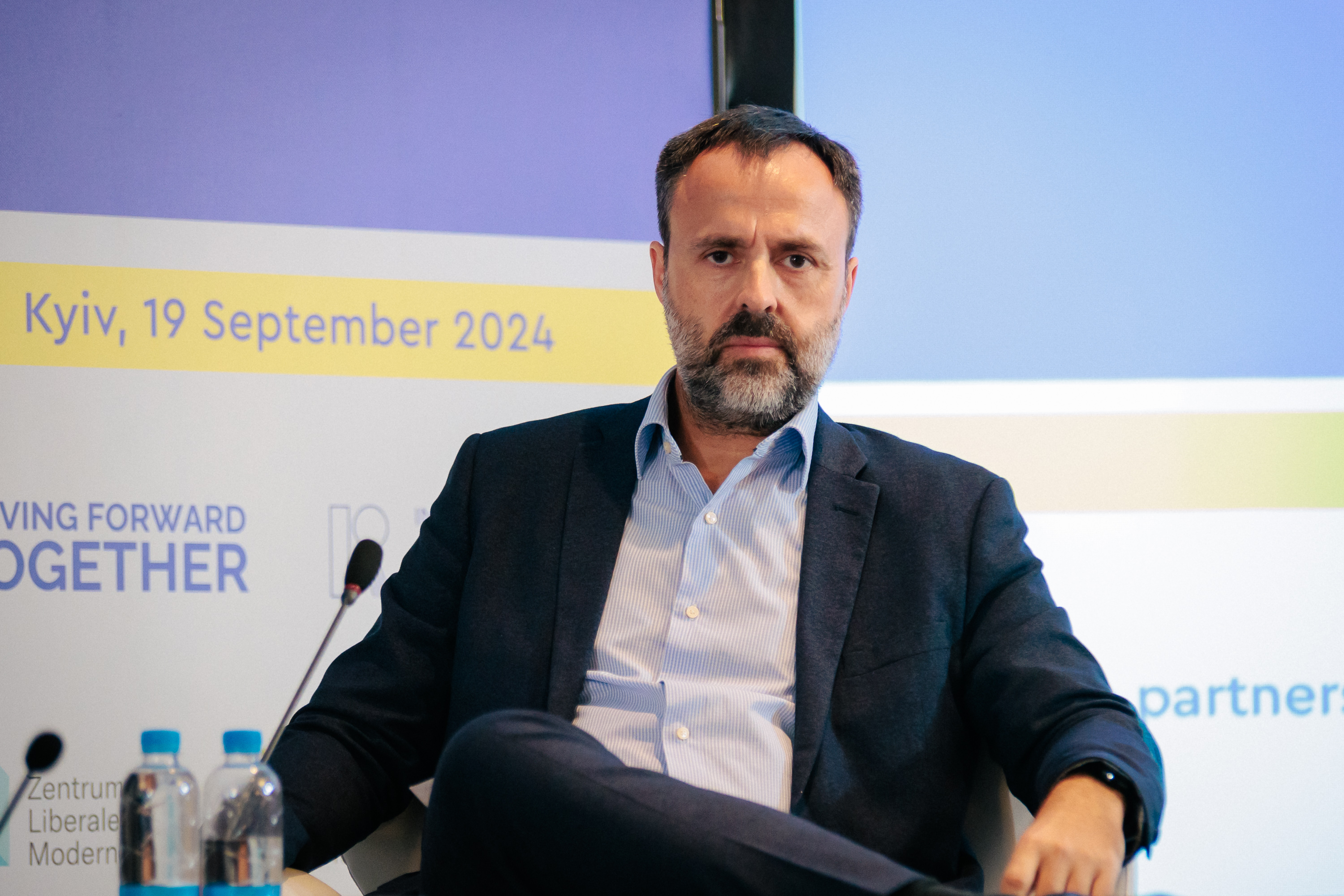
Robert Kirchner, Team Leader of the Low Carbon Ukraine project, Berlin Economics:
It was always a clear case that the EU integration, from economic point of view, is much more beneficial for Ukraine. But sometimes it is forgotten that it is also beneficial for the European side. Such integration, from an economic point of view, is a win-win situation. Obviously, in relative terms the advantages are more on the Ukrainian side because it’s smaller, but this is always important when we talk about cost and price, Europe also benefits economically from an integration of Ukraine.
An EU accession of Ukraine would have a positive impact on the European side. So, there are measures that should not be taken. I’m referring here to the blockades that have been really very bad for both sides. Not just damaging Ukraine in the war, which I would say is a stab in the back economically, but also the European economy. Because we’re actually exporting more to Ukraine than we’re importing, so it was a “lose-lose” situation. And there are also the embargoes on certain agricultural products that are in my point of view absolutely pointless and should not be done.
Other ones are autonomous trade measures that had been suspended after the war and for now till June 2025 Ukraine can export without duties to the EU. That is good, it brings 3 billion dollars in export revenue. But it is a temporary measure, and the problem is that investors do not take it as a sign to invest.
One more measure is to remove technical barriers (TBT) and phytosanitary measures (SPS). We did calculations, as a result, bilateral trade between the EU and Ukraine could be increased by 11 billion dollars and 1 billion dollars in tax revenue as well. These are the medium-term measures in parallel to the accession negotiations that should be conducted in order to improve the economic performance and resilience of Ukraine.
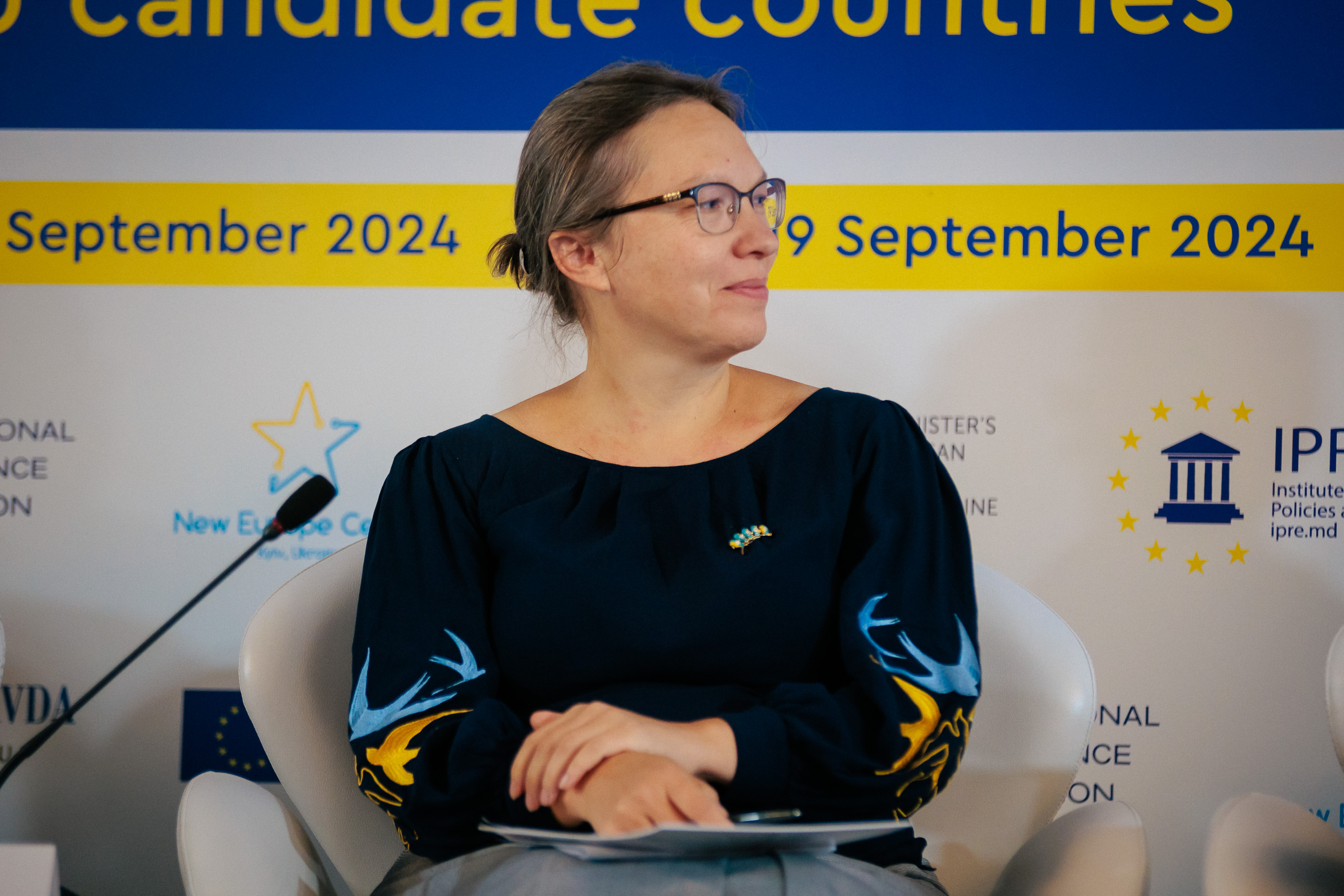
Oleksandra Betliy, Leading Research Fellow, Institute for Economic Research and Policy Consulting, Ukraine:
Actually, Ukraine has experience to do difficult reforms when some privileges and subsidies are cut. It’s hard, but it can be still done. It’s really difficult to estimate the costs, but these costs actually bring opportunities. All these difficult reforms for Ukraine create opportunities not only for Ukrainian business to go abroad, to start trading with the European Union, but also they create opportunities for European countries to bring business here.
Ukraine has homework to do, and it has started already doing it. We have done lots of reforms in the new agenda as well, and we are approaching more. So everybody knows how much we have on the table to do reforms. And here, all these reforms will be about prosperity, stable economic situation and business opportunities.
When we talk about such opportunities, it is not only about agriculture, but also about food processing. Ukraine exports a lot of raw materials, but we want more to be produced in Ukraine. That is why technical regulations changes and ACA is important to Ukraine, so that European business can come here, to start working according to the standards that are already used in the EU. And this is the reason Ukrainian government pushes these reforms, and business with experts support them.
We cannot talk about the cost of enlargement without mentioning the cost of reconstruction of Ukraine. And it will still be there. Therefore, the cost of reconstruction will outpace the cost of enlargement. It is really important that European countries actually help us to win the war, because the longer the war is, the bigger the cost of recovery.
The joint ventures will be really something which is to be done, but the government really has to do its job in implementing all the necessary reforms in order that so the business feels really good here.
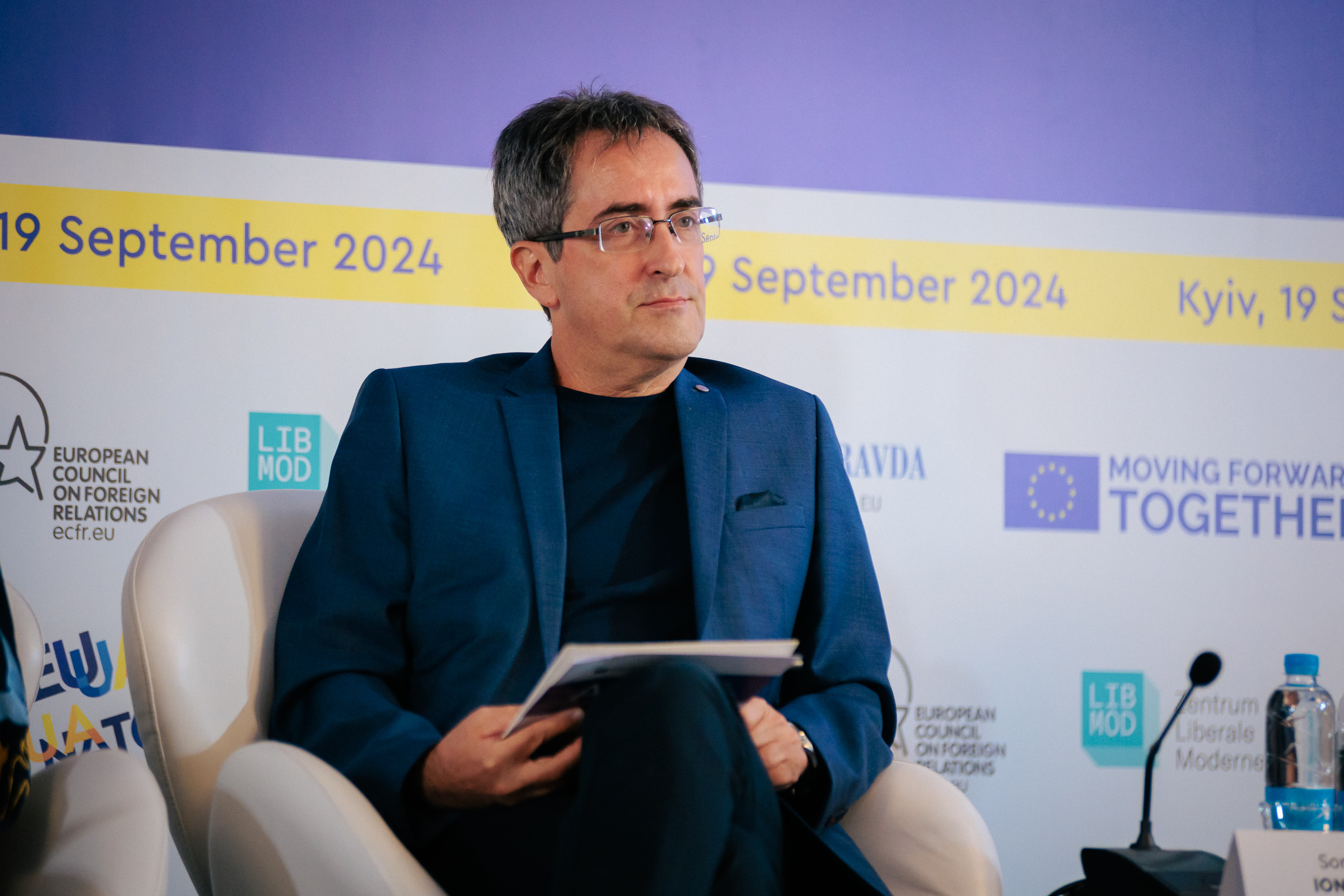
Sorin Ionita, President, Expert Forum (EFOR), Romania:
How much will the accession cost? My short answer is that we have no clue. There are a lot of known unknowns, like the needed reform of Common Agricultural Policy. In order to have EU 35, which means in 10 years from now, in 2035, to have a new EU with 35 members, including Ukraine, Moldova and the Western Balkans. So, it is pretty obvious that you need to change the rules of the game in order to have such a Europe possible.
If we learned one thing from Ukraine from the years of war, it is how important to rethink the energy production, to decentralize production, to network. And we have to look back and ask ourselves: is it an integrated market? Do we have a common market, not with powerful national regulators of today, but with where you can trade electricity freely and adjust to build resilience?
Look at the big price differentials between the EU member states and let’s ask ourselves what can we learn from Ukraine actually and in what way the integration of Ukraine and the other countries can be an impetus to finalize reforms which we should have finalized in the EU years or decades ago, and that these unfinished discussions, you know, were postponed because it’s really politically painful to reform Europe from inside.
EU is a space of rules, actually. But when this war in Ukraine began, and we started to apply sanctions to Russian oligarchs or to people from around Putin, we realized how hard it is to do it in reality. Suddenly, we saw in broad daylight a whole ecosystem of consultants, bankers, real estate agents who serve the interest of dirty money from outside Europe, from different authoritarian regimes who steal from their people and put money into the EU. Some steps were made, but still today we see how difficult it is to impose sanctions and how powerful those people are. I think it is still an unfinished agenda in the EU.
I hope that the integration of the new wave will be an impetus to finish these reforms inside. And hopefully, this will be an occasion to rethink a lot of things inside the European Union, besides the narrow understanding of the cost for the budget.
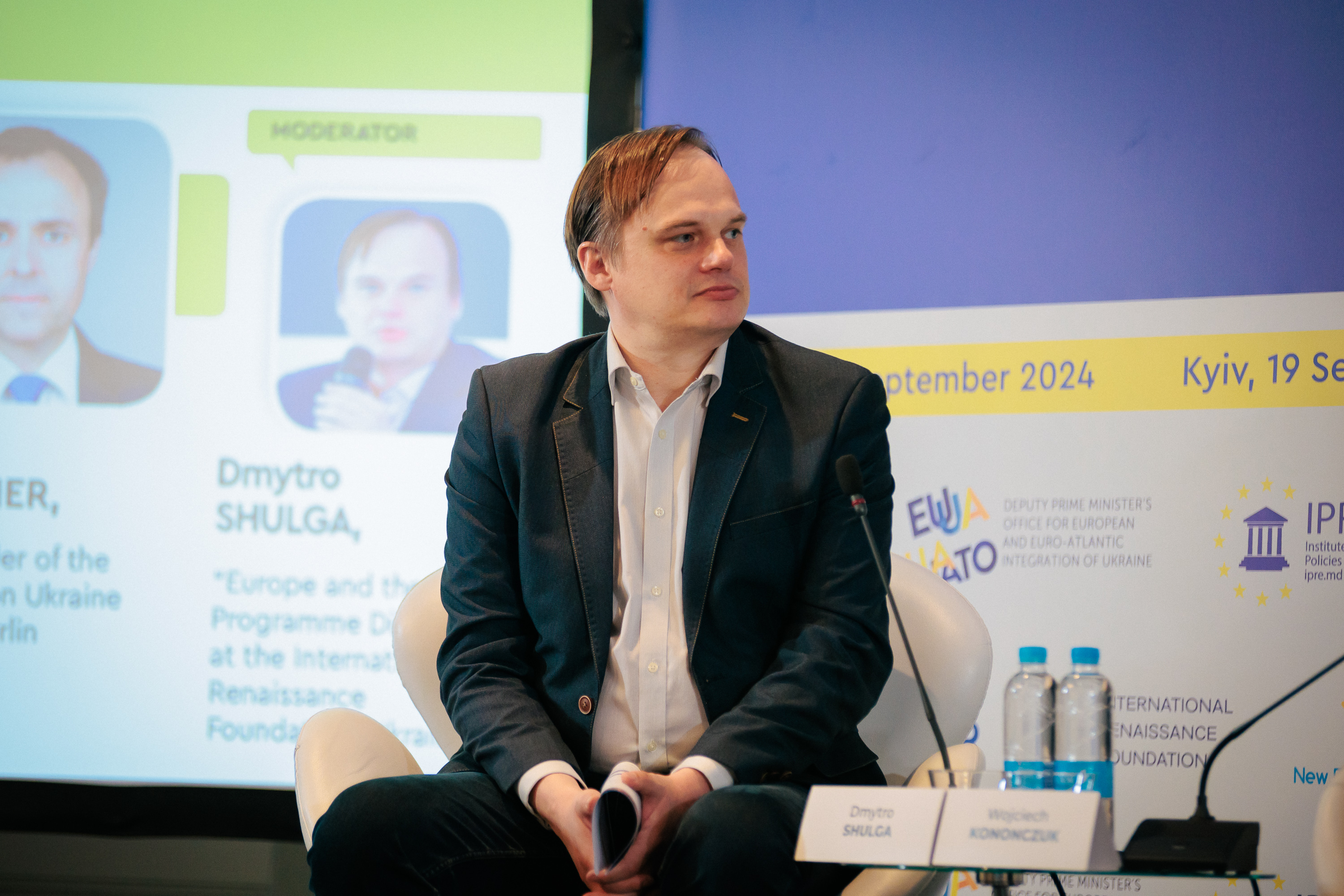
The Session 4 was kindly moderated by Dmytro Shulga, “Europe and the World” Programme Director at the International Renaissance Foundation, Ukraine.
Video recording of the Forum is available here.
PHOTO report of the Forum is here.
The EU Accession Exchange Forum is organized by the New Europe Center in partnership with the Office of the Deputy Prime Minister of European and Euro-Atlantic Integration of Ukraine, the International Renaissance Foundation, the European Council on Foreign Relations, the Institute for European Policies and Reforms, the Center for Liberal Modernity and the European Pravda. The EU Accession Exchange Forum is taking place with EU support, within the EU-funded “European Renaissance of Ukraine” project implemented by the International Renaissance Foundation.
New Europe Center is greatful for wide media support of the Forum to informational agency UKRINFORM.



